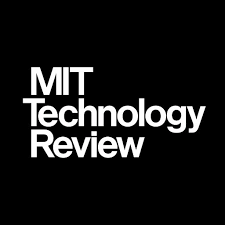
Extractive summaries and key takeaways from the articles curated from TOP TEN BUSINESS MAGAZINES to promote informed business decision-making | Week 304 | July 7-13, 2023

Eric Schmidt: This is how AI will transform the way science gets done
Science is about to become much more exciting—and that will affect us all, argues Google’s former CEO.
By Eric Schmidt | MIT Technology Review | July 5, 2023
Listen to the Extractive Summary of the Article
It’s yet another summer of extreme weather, with unprecedented heat waves, wildfires, and floods battering countries around the world. In response to the challenge of accurately predicting such extremes, semiconductor giant Nvidia is building an AI-powered “digital twin” for the entire planet. This digital twin, called Earth-2, will use predictions from FourCastNet, an AI model that uses tens of terabytes of Earth system data and can predict the next two weeks of weather tens of thousands of times faster and more accurately than current forecasting methods.
The hoped-for revolution in climate modeling is just the beginning. With the advent of AI, science is about to become much more exciting—and in some ways unrecognizable. The reverberations of this shift will be felt far outside the lab; they will affect us all.
If we play our cards right, with sensible regulation and proper support for innovative uses of AI to address science’s most pressing issues, AI can rewrite the scientific process. We can build a future where AI-powered tools will both save us from mindless and time-consuming labor and also lead us to creative inventions and discoveries, encouraging breakthroughs that would otherwise take decades.
Scientists at McMaster and MIT, for example, used an AI model to identify an antibiotic to combat a pathogen that the World Health Organization labeled one of the world’s most dangerous antibiotic-resistant bacteria for hospital patients. A Google DeepMind model can control plasma in nuclear fusion reactions, bringing us closer to a clean-energy revolution. Within health care, the US Food and Drug Administration has already cleared 523 devices that use AI—75% of them for use in radiology.
Moving on to the experimentation step, AI will be able to conduct experiments faster, cheaper, and at greater scale. For example, we can build AI-powered machines with hundreds of micropipettes running day and night to create samples at a rate no human could match. Instead of limiting themselves to just six experiments, scientists can use AI tools to run a thousand.
Eventually, much of science will be conducted at “self-driving labs”—automated robotic platforms combined with artificial intelligence. Here, we can bring AI prowess from the digital realm into the physical world. Such self-driving labs are already emerging at companies like Emerald Cloud Lab and Artificial and even at Argonne National Laboratory.
Finally, at the stage of analysis and conclusion, self-driving labs will move beyond automation and, informed by experimental results they produced, use LLMs to interpret the results and recommend the next experiment to run. Then, as partners in the research process, the AI lab assistant could order supplies to replace those used in earlier experiments and set up and run the next recommended experiments overnight, with results ready to deliver in the morning—all while the experimenter is home sleeping.
Although tech companies have made strides in AI safety, government regulators are currently woefully underprepared to enact proper laws and should take greater steps to educate themselves on the latest developments.
3 key takeaways from the article
- With the advent of AI, science is about to become more exciting—and in some ways unrecognizable. The reverberations of this shift will be felt far outside the lab; they will affect us all.
- Nevertheless, this is a profoundly optimistic moment. Previous paradigm shifts in science, like the emergence of the scientific process or big data, have been inwardly focused—making science more precise, accurate, and methodical. AI, meanwhile, is expansive, allowing us to combine information in novel ways and bring creativity and progress in the sciences to new heights.
- If we play our cards right, with sensible regulation and proper support for innovative uses of AI to address science’s most pressing issues, AI can rewrite the scientific process. We can build a future where AI-powered tools will both save us from mindless and time-consuming labor and also lead us to creative inventions and discoveries, encouraging breakthroughs that would otherwise take decades.
(Copyright)
Topics: Technology, Science, Knowledge, Artificial Intelligence

Leave a Reply
You must be logged in to post a comment.